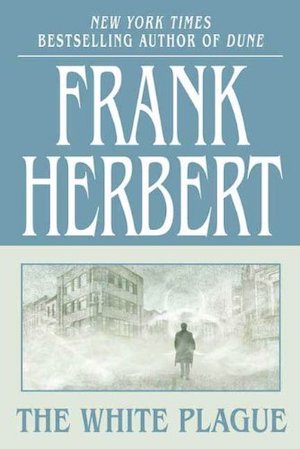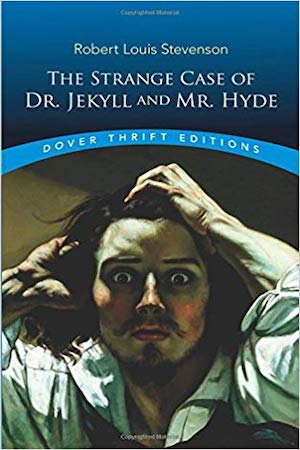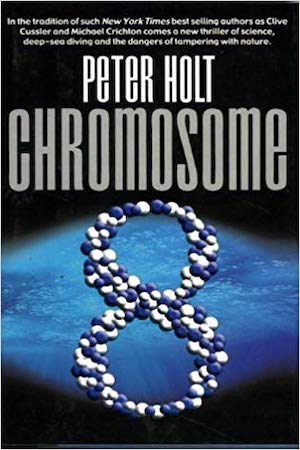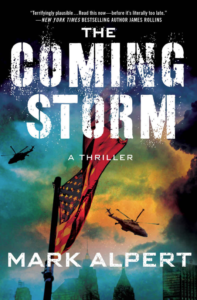
Summary:
A molecular biologist is driven mad when he witnesses the murder of his wife and children by Irish Republican terrorists (ah, remember those pre-9/11 days?). He takes his revenge by engineering a plague that kills women. Like the plague, Herbert’s story travels the globe, following the attempts of governments to contain or cure the disease, and the unraveling of society that accompanies the death of the female half of the world’s population.
Publication Date: 1982
Category: science fiction; science thriller; psychological thriller
ScienceThrillers technical content rating: ![]()
ScienceThrillers.com book review of The White Plague :
Yes, the author is the same Frank Herbert who wrote the science fiction classic Dune.
In terms of style, The White Plague has much in common with Dune. It’s moody, complex, deeply psychological, political and apocalyptic, and certainly bears little resemblance to the potato-chippy quick snacks that most contemporary thrillers are. The White Plague is long and thought-provoking, delving into morality and the meaning of insanity. It is also an exceedingly well-written story, though Herbert’s style for conveying action is sometimes obtuse.
Most of the plot takes place in Ireland, a country hard-hit as the first target of the biologist’s revenge. We follow the travails of a young couple, a (male) medical student and his nursing student girlfriend who wander the countryside trying to avoid contamination that would lead to her death. Civil war and terrible cruelty haunt their steps. Also traveling the dangerous country roads of Ireland is the perpetrator, who is mentally unhinged but the target of an intensive manhunt because only he knows how to end the holocaust he began.
Note the publication date: 1982. The single most remarkable thing about this book is the prescience Herbert shows in regard to biotechnology. At that time, genetic engineering was in its infancy; only the simplest gene splicing experiments had been performed, and few members of the general public had a clue of the growing power of the biological sciences. Frank Herbert’s imagination leaped forward a generation, postulating the creation of a disease specifically designed by a bioterrorist (before the word existed) with a molecular preference for a targeted subset of humans: females. Herbert impressed me by tossing around a variety of relevant technical terms, though ultimately the scientific details are vague and don’t hold up to scrutiny.
But technical accuracy isn’t the point. The White Plague is a compelling story that defies easy categorization: part literary fiction, part science fiction, part thriller. Definitely worth reading.
This book also was part of the inspiration for my third novel, The Han Agent.




0 Comments